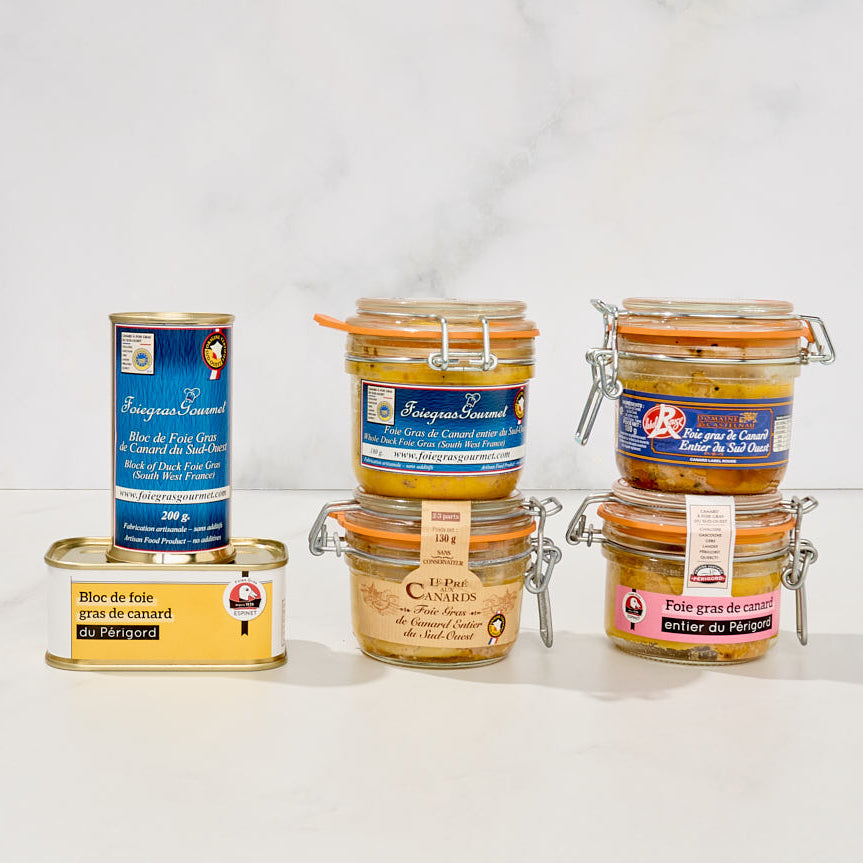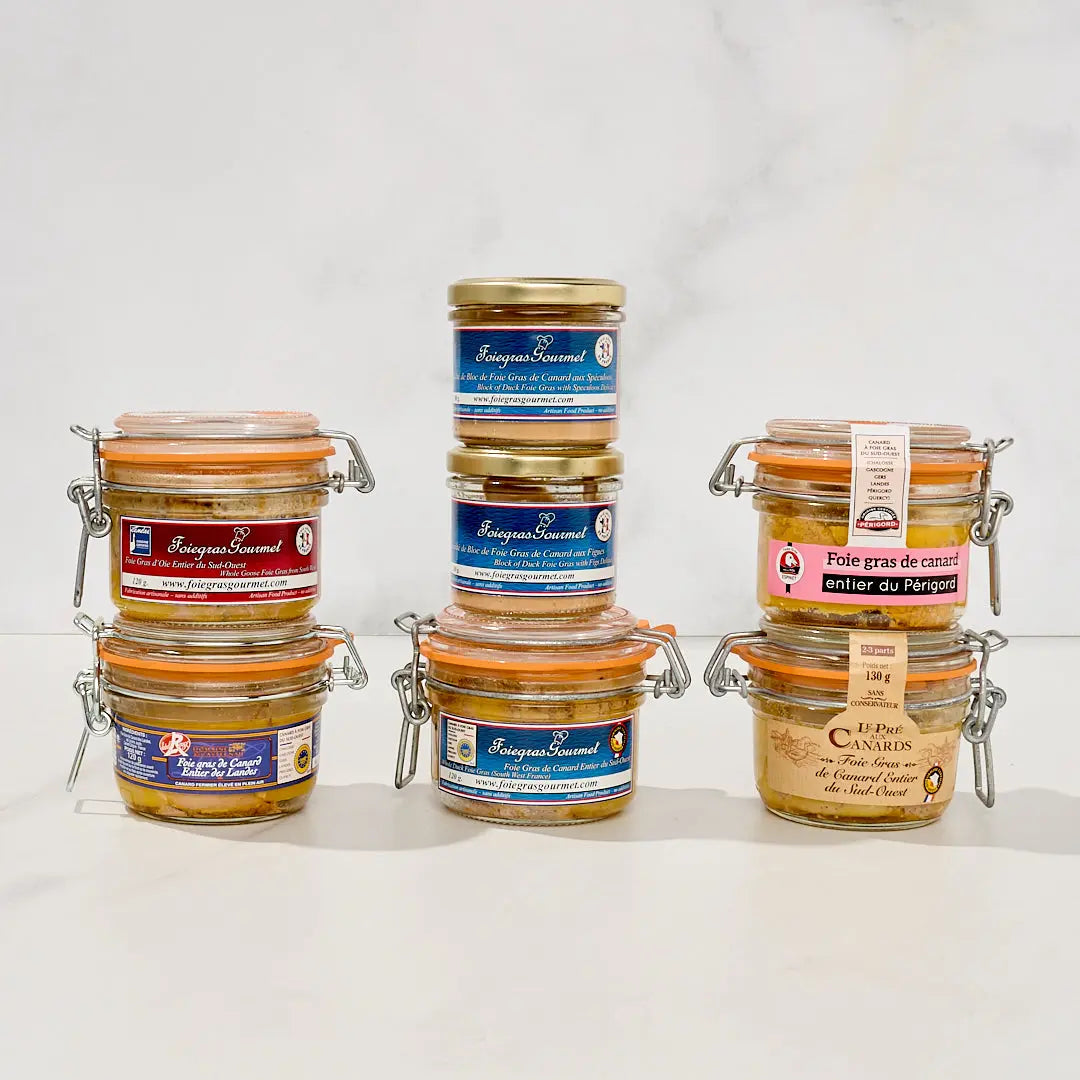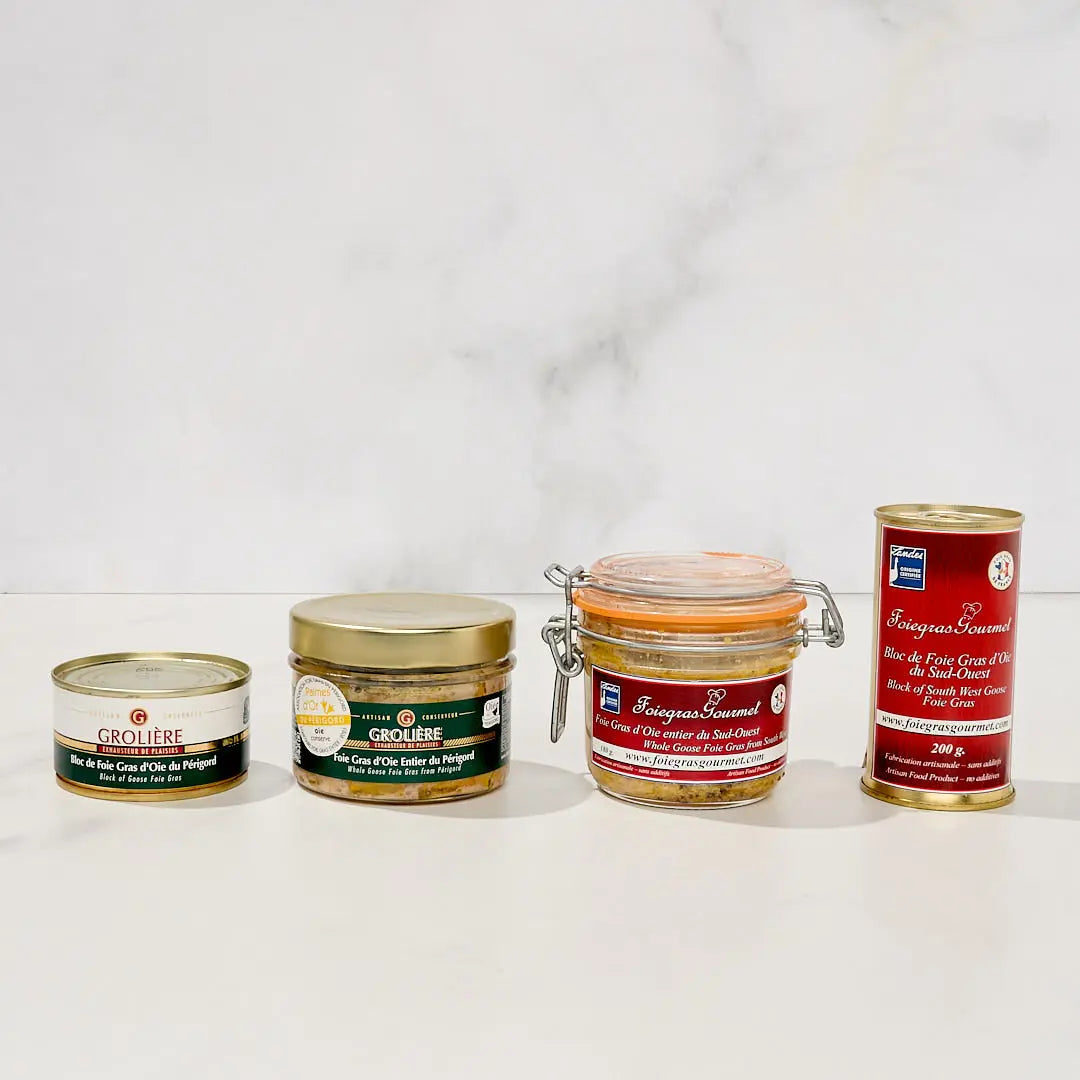What does goose foie gras taste like?
More refined than the very popular duck foie gras, goose foie gras represents less than 5% of French foie gras production. It surprises by its subtlety and enchants the taste buds of the finest connoisseurs.
Goose foie gras is associated with Alsace, a region in eastern France, even though today fresh goose livers may come from other countries such as Hungary or Bulgaria. The foie gras industry is much more developed in South-West France, mainly due to the extensive cultivation of corn which provides the ducks with a diet of excellent quality grain.

In recent times, in spite of higher production costs and a smaller market, some South West foie gras producers have begun to raise geese to produce comparatively small amounts of sought-after goose foie gras. This means that the whole process of raising, feeding and slaughter of the geese occurs in France. The quality of the resulting goose foie gras is superior as is the welfare of the birds are.
Always choose a goose foie gras produced from birds born, raised, fattened and slaughtered in France on farms that respect the animals' well-being and which you are often welcome to visit. You will be able to see the animals living in freedom and also, should you wish, attend gavage sessions to judge for yourself whether birds there are subject to cruelty or practices considered to be cruel, such as the use of unnecessary and damaging metal feeding tubes inserted in their throats.
What does goose foie gras taste like? What should accompany this prestigious dish? Let's take a closer look at this little jewel in the crown of gastronomy.
What does goose foie gras taste like?
Compared with the rustic tones of duck foie gras, goose foie gras has a more subtle and and less characterized flavor. It has a sweetness that can please as well as confuse: some people who are used to the robustness of whole duck foie gras can tend to find it bland.
Connoisseurs of goose foie gras would disagree in the strongest terms! They will talk of its finesse, its delicacy on the palate and extol its unctuous yet melting texture, offering an incomparable sensory pleasure.
Put simply, to fully experience the delight of goose foie gras you must be patient: as a refined dish, it delivers all its delightful flavors in the aftertaste, in contrast with its counterpart, duck foie gras which approaches the taste buds more frontally, releasing all its aromatic power right away.
Goose and duck foie gras: what other differences are there?
Apart from being distinguishable by their different flavors, they can be easily identified by their visual appearances. While duck foie gras takes on a particularly appetizing beige-orange hue, cooked goose foie gras has a more grayish color - making it a little less noticeable on our festive tables. Raw, on the other hand, it has a beautiful pinkish hue.

Aside from taste, there is another reason that chefs in the best restaurants often favor goose foie gras in their recipes. The fatty goose livers are larger in size and heavier than those of the duck. Consequently, they hardly melt at all when cooked and release less fat.
What to eat with goose foie gras?
Given its delicate and refined flavor, keep things simple! Both sweet and savory accompaniments work well – but always use sparingly so as not to mask the delicate aromas of the foie gras. Simply placed delicately on a slice of fresh toast and accompanied by a crisp green salad it as close to perfection as is possible.
For food and wine pairings, a whole goose foie gras from the Périgord region is best served with a young or mature sweet white wine. To stay with a regional food and wine alliance, choose a sweet white wine from Bergerac or a still wine from Monbazillac. For a festive starter at Easter or any other special occasion, pair it with a light champagne such as a Chardonnay Blanc de Blancs.
If you would like to discover the finest in goose foie gras, why not try our "All Goose Tasting" selection which combines the best of Grolière's foie gras: a block of goose foie gras and a whole goose foie gras from Périgord, a prestige product awarded a Silver Medal at the Concours Général Agricole de Paris in 2019.












Ask questions on the topic of foie gras